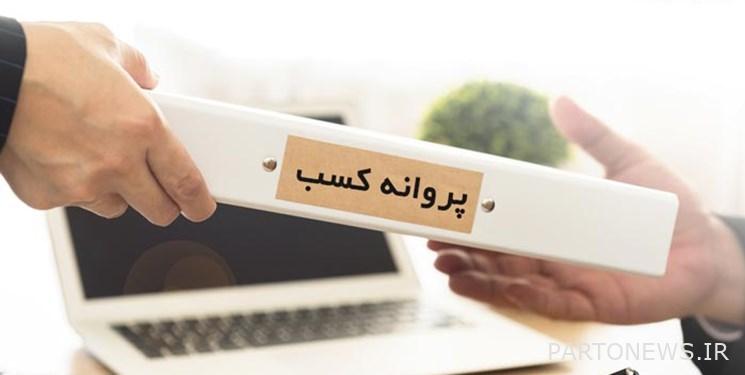Dismantling of business licensing brokers with the National Licensing Portal

According to the economic correspondent of Fars News Agency, the deadline for licensing authorities to electronic business licenses expires in just three days, but some agencies still resist the implementation of the law and are not connected to the national licensing portal.
The business environment is composed of various components and factors, one of the most important components of which is business licenses and has a great impact on the creation and development of business environment in the country.
Articles 1 and 7 of the General Policies of Article 44 of the Constitution, which were amended for the second time in February last year and approved by the members of the 11th Majlis, gave licensing authorities one year to submit the terms and conditions for issuing business licenses at the National Licensing Portal. Transparency and connect their specialized systems to the national portal of licenses. In other words, with the notification of this law to the executive bodies on March 9, 2017, the one-year deadline for the agencies to perform their legal duties began in accordance with the provisions of this legal article, and this deadline will end in three days.
In this regard, Mohammad Hadi Sobhanian, the Deputy Minister of Economy, had previously announced that if the agencies do not join the national portal of licenses, we will inform the president and the supervisory bodies, and we will also announce the names of the agencies that did not cooperate.
* Why is the national portal of licenses not implemented?
Many experts believe that the business license system is the prelude to entering a manufacturing or service activity. If this system follows a certain structure and rule, it will not only be effective in improving and developing the business environment, but also will provide a platform for the growth and expansion of economic activities in the country.
Kamran Rahimi, an expert on Iran’s economic affairs, said in an interview with Fars News Agency’s economic correspondent: “Despite 13 years since the adoption of this legal article and its subsequent amendments, the inefficiency and abandonment of executive bodies has caused this law to remain on the ground and a global index.” The country’s business on a global scale to move against the goals of development plans, including the Sixth Development Plan; According to the Sixth Development Plan, Iran’s ranking should have been less than 70 by the end of the program, but now, according to the latest statistics from the World Bank, the country’s ranking indicates that Iran’s business situation index is 127th out of 187 countries.
* The approvals of the deregulation board do not guarantee insufficient implementation
However, Note 3 of Article 57 of the Law on the Elimination of Barriers to Competitive Production and the Improvement of the Financial System, which amends Article (7) of the General Policy Implementation Law, Article 44, states: “After the approval of the Minister of Economy and Finance and the approval of the Cabinet of Ministers, after the approval of the Cabinet, it will be applicable to all business licensing authorities and all agencies and institutions involved in issuing business.”
However, in practice, the agencies did not consider themselves obliged to implement the approvals of this board, and for this reason, many of the decisions adopted and announced by the deregulation board to facilitate the issuance of licenses were not only not implemented, but also issued directives or regulations. The new decision of that deregulation board has been ineffective and invalid. In other words, while redundant ways and processes are eliminated by the deregulation board, those processes are re-identified with titles. This is also due to the lack of guarantees for the implementation of the decisions of the deregulation board.
* Imprisonment awaits offenders
Rahimi, an Iranian economist, says: “In the discussion of licenses, complaints against the devices and individuals who disrupt the licensing have been left to the Competition Council, while this institution is not structurally capable of dealing with violators and the ruling that It issues, it has no executive guarantee.
Of course, Articles 1 and 7 of the General Policies Law, Article 44 of the Constitution, provide for imprisonment for devices that refuse to connect to the national portal of licenses. The existence of such a punishment can guarantee a good implementation of this law.
* Existence of informal market in issuing some licenses
Previously, according to the law, the maximum fines for not issuing a license under the pretext of market saturation were very small; This is while the price of some licenses was more than one billion tomans and these licenses were being bought and sold. For this reason, the violators did not hesitate to violate, and in addition to encouraging the formation and expansion of the informal market in the issuance of some licenses, they had the idea that punishing and dealing with violators is not a serious and follow-up issue, and if implemented. There will be no disruption to the informal market that has been created. In fact, this type of punishment has led to the recognition of the informal market in the licensing issue.
It seems that by connecting 33 licensing devices to the national licensing portal and establishing strong oversight in this area, it can be hoped that one of the main problems in business licensing will be removed from the feet of entrepreneurs.
End of message /
You can edit this post
Suggest this for the front page

